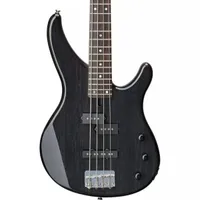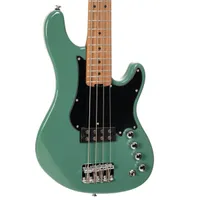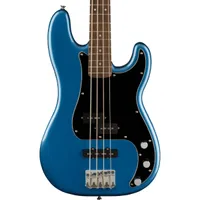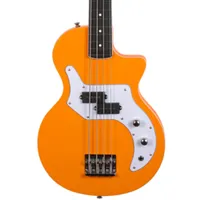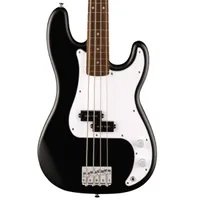Best beginner bass guitars 2026: top starter basses for beginners
The best beginner basses for young players, newcomers, and the budget-conscious, picked by our experts – featuring Yamaha, Squier, Ibanez and more
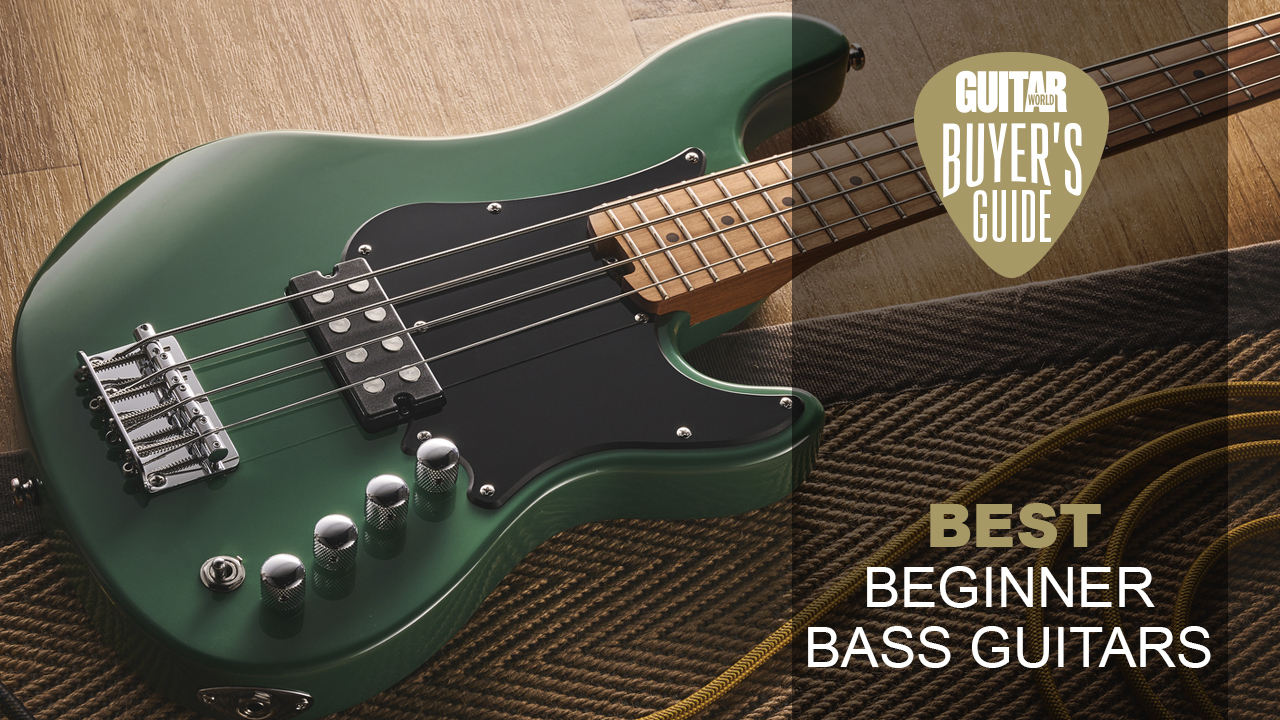
All the latest guitar news, interviews, lessons, reviews, deals and more, direct to your inbox!
You are now subscribed
Your newsletter sign-up was successful
Whether you're looking to take up the bass guitar as your first instrument or you're a guitarist wanting to make the jump to the rhythm section, my guide to the best beginner bass guitars will help you pick out an instrument perfectly suited to your needs. This guide was written with twenty years of playing experience and five years of working in music retail, so you can rely on the recommendations I make.
For the best overall bass, I'd go for the Yamaha BB234. It's such great quality that it'll take you from beginner musings right through to your first shows, thanks to Yamaha's tried and tested build quality. For younger players, you'll need a short-scale bass, and I recommend the Squier Sonic Bronco Bass. It's super comfortable to play, ideal for young kids and those with smaller dimensions.
If you're completely new to the world of stringed instruments, then I recommend you check out my how-to-choose section, which lists every consideration you'll need to know before buying. I've also put together a comprehensive set of FAQs and a glossary of key terms to help you with any bass-specific lingo.
My top picks
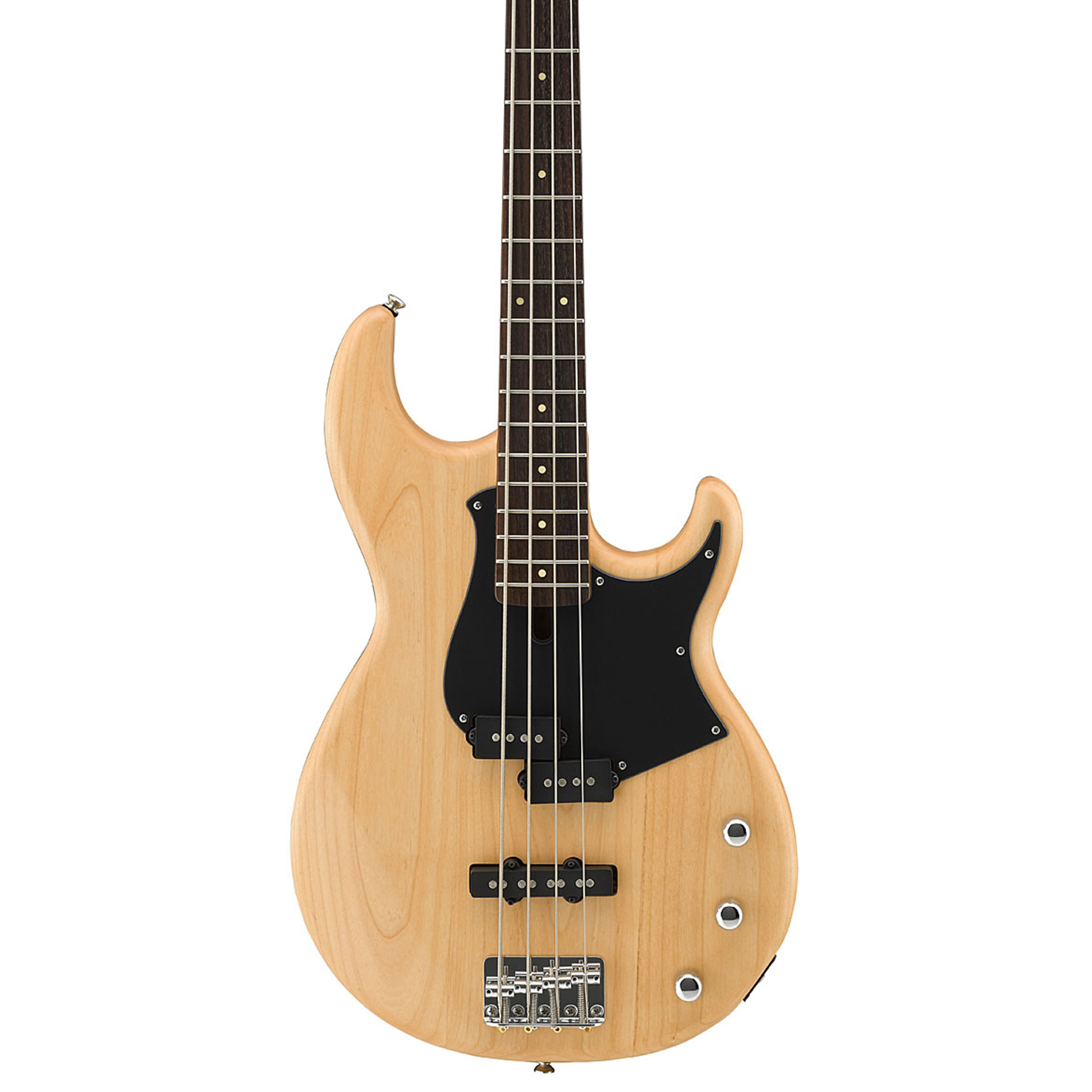
A most inviting bass with a vintage-modern body shape and design, the BB234 has an exceptional build, with a warm and rich low-end that’s got a surprising amount of tones given the fuss-free control setup. This will cover most styles; ideal for when you’re still trying to work out what sort of player you are.
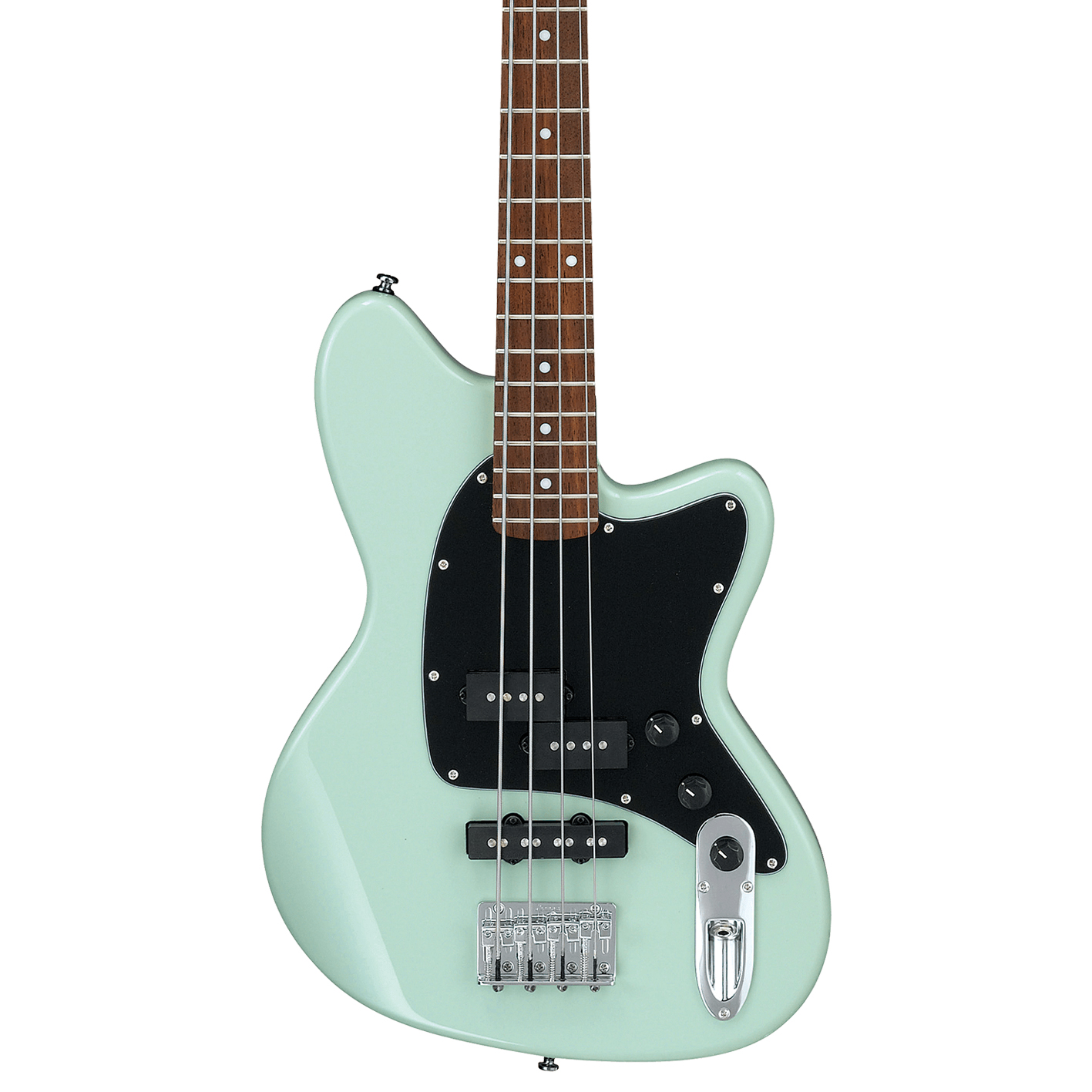
The Ibanez DXP and DXJ pickups are versatile and dynamic, giving you that ‘best of both worlds’ configuration. The comfortable and smooth short-scale 30” neck, while slightly wider than some beginner bass guitars, is a dream to play. Additionally, if you’re looking for a comfortable bass, the Talman’s offset body is ergonomic and lightweight.
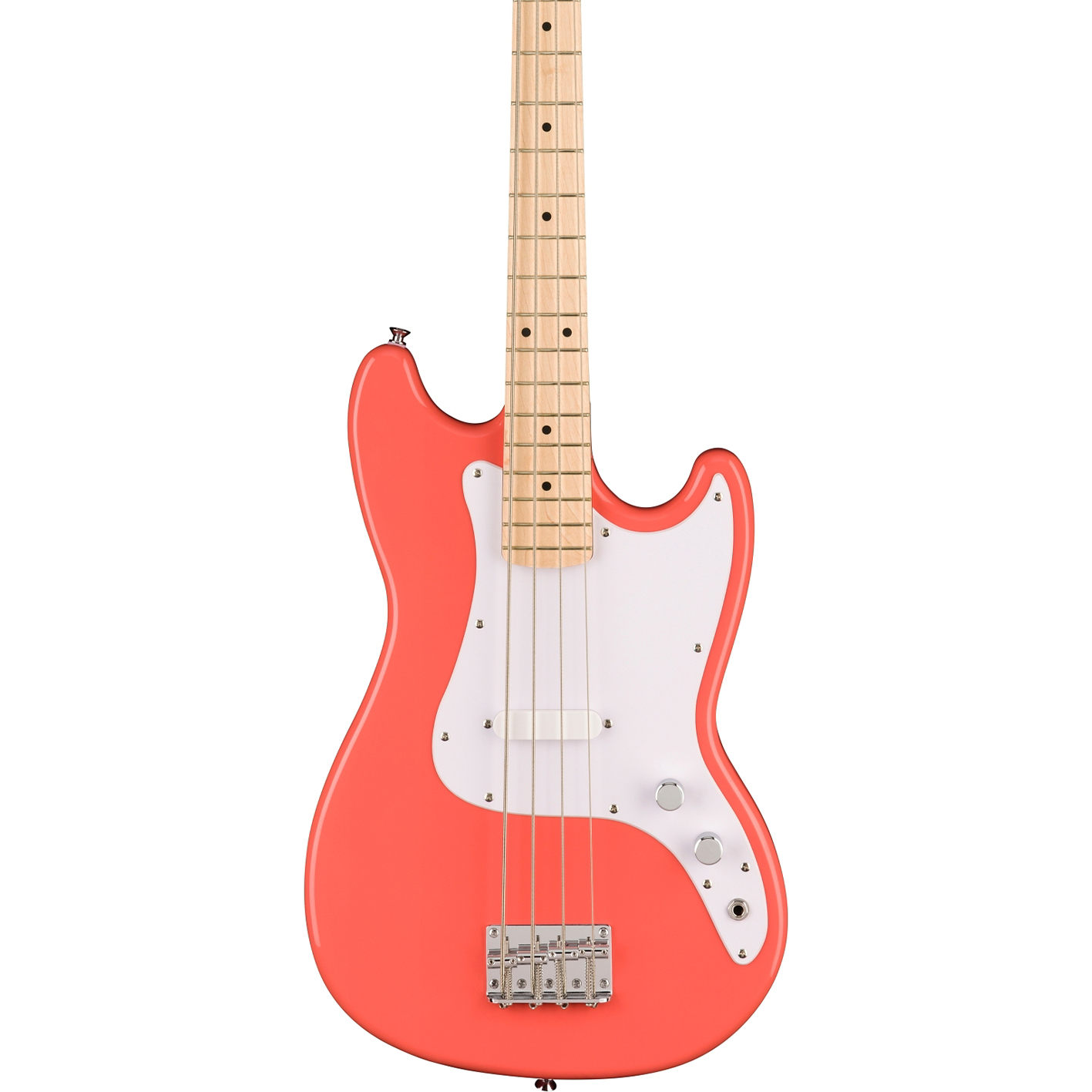
There’s just a single ceramic pickup to keep things simple, but it’s placed right at the center of the body to give it a great sound. Similar in tone to the early Fender Precision Bass guitars, it delivers a nice vintage-tinged growl that’s sweet in the high end with plenty of oomph in the lows.
Best overall
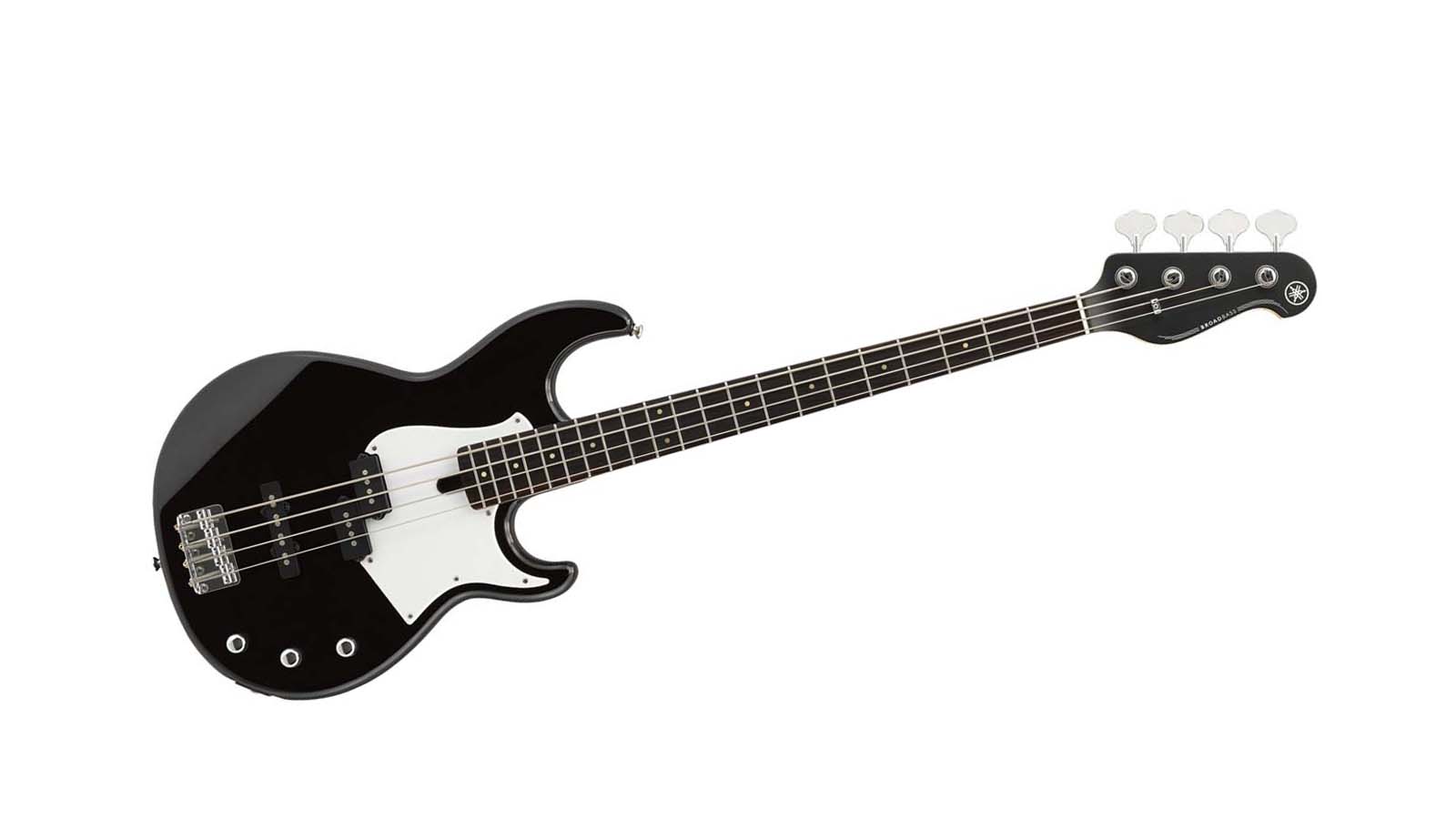
1. Yamaha BB234
Our expert review:
Specifications
Reasons to buy
Reasons to avoid
✅ Buy if you want the best all-rounder: The BB234 is capable of pretty much any style or sound, making it a great starting point for any budding bassist.
❌ Avoid for young kids: This is a full-size bass guitar, which will be way too cumbersome for younger players and those with small dimensions.
The BB234 does for basses what the Pacifica 112 does for the beginner electric guitar: it is living proof that Yamaha knows exactly how to make a formidable instrument of real substance for younger players and those on a budget.
A most inviting bass with a vintage-modern body shape and design, the BB234 has an exceptional build, with a warm and rich low-end that’s got a surprising amount of tones given the fuss-free control setup. This will cover most styles; ideal for when you’re still trying to work out what sort of player you are.
There’s no blend control or pickup selector, but playing around with the individual pickup volumes allows you to set the mix how you like it, with the tone knob on hand for fine-tuning.
Best budget
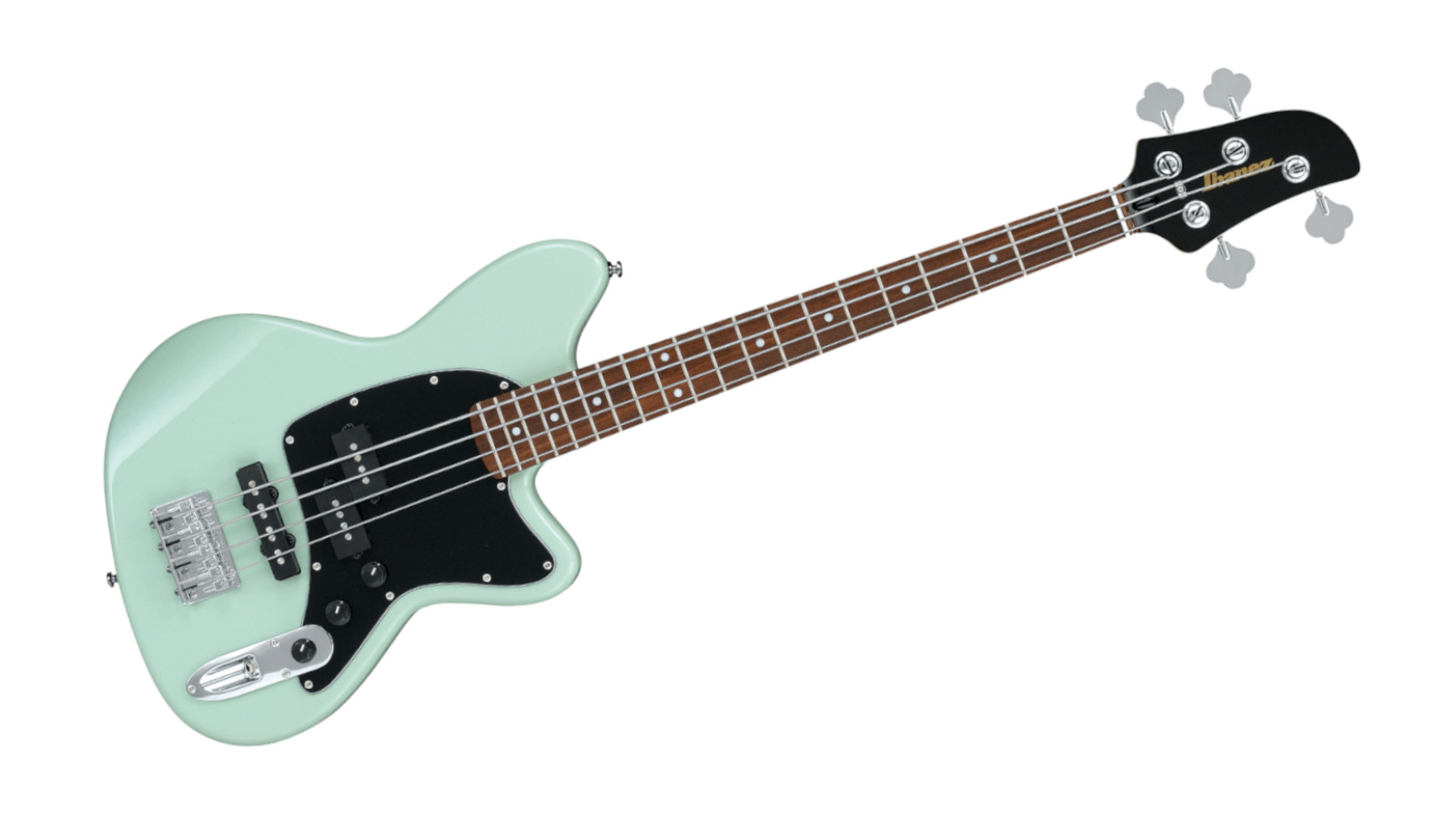
2. Ibanez Talman TMB30
Our expert review:
Specifications
Reasons to buy
Reasons to avoid
✅ Buy if you want something on a budget: The Talman bass is a very capable instrument despite its budget price point, great if you need something on the cheap or for moonlighting guitarists.
❌ Avoid if you're a lefty: There's no left-handed option for this bass guitar, so you'll need to look elsewhere.
You may be more acquainted with Ibanez producing mean-looking, fast-playing, shred-tastic electric guitars, but let us tell you, the Japanese giants have knocked it out of the park with the offset Talman TMB30 bass.
Hitting the market in ’94, the Talman body shape was Ibanez’s nod to vintage guitar design. Taking inspiration from brands like Danelectro and Fender, the Talman was versatile, well-made, had a fast neck and was a little less pointy in design. All features of which are proudly represented on the TMB30 bass.
The Ibanez DXP and DXJ pickups are versatile and dynamic, giving you that ‘best of both worlds’ configuration. The comfortable and smooth short-scale 30” neck, while slightly wider than some beginner bass guitars, is a dream to play. Additionally, if you’re looking for a comfortable bass, the Talman’s offset body is ergonomic and lightweight meaning younger players and gigging musicians alike can find use of it. All of this for under $250? It’s no wonder the TMB30 has ended up on our list of best beginner bass guitars!
Best for kids
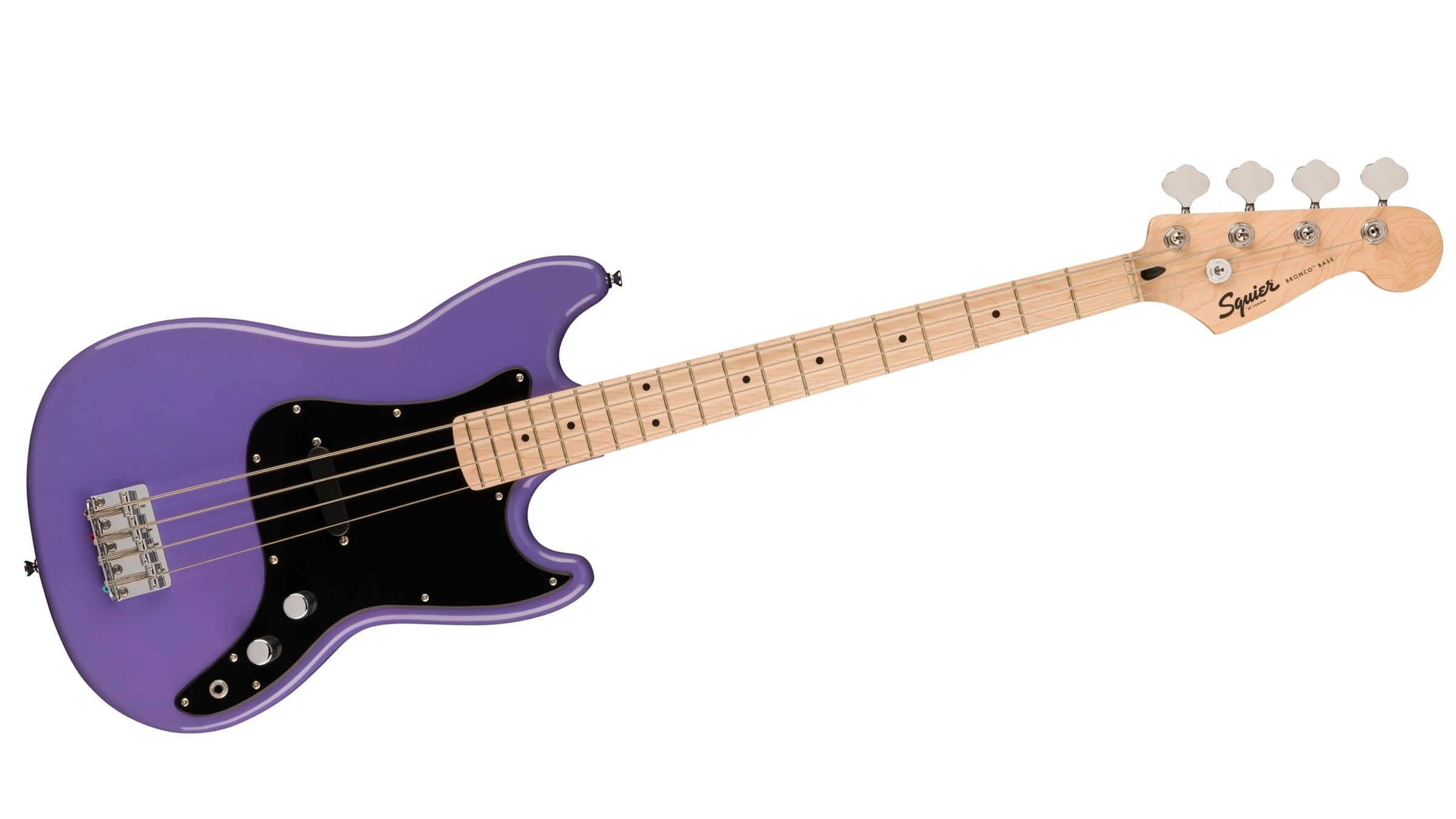
3. Squier Sonic Bronco Bass
Our expert review:
Specifications
Reasons to buy
Reasons to avoid
✅ Buy if you want something for younger players: The short scale and simple setup of the Bronco Bass make it ideal for younger players wanting their first bass guitar.
❌ Avoid for adults: This instrument will probably feel a bit too small for older players or those making the jump from an electric guitar.
Part of a brand new range of beginner-friendly guitars from Fender, the Squier Sonic Bronco Bass is a short-scale guitar that will fit nicely into the hands of younger players. Featuring the trademark build quality as well as a range of cool colors, it’s the perfect entryway into the world of bass guitar.
There’s just a single ceramic pickup to keep things simple, but it’s placed right at the center of the body to give it a great sound. Similar in tone to the early Fender Precision Bass guitars, it delivers a nice vintage-tinged growl that’s sweet in the high end with plenty of oomph in the lows.
It’s nice and lightweight unlike some of the other bass guitars here, so won’t strain necks and backs too much when playing standing up. Considering the price point you’re getting a lot of bang for your buck with the Bronco Bass, and the fact it’s available in some less usual color schemes will make it seriously appealing for new players.
Best for adults
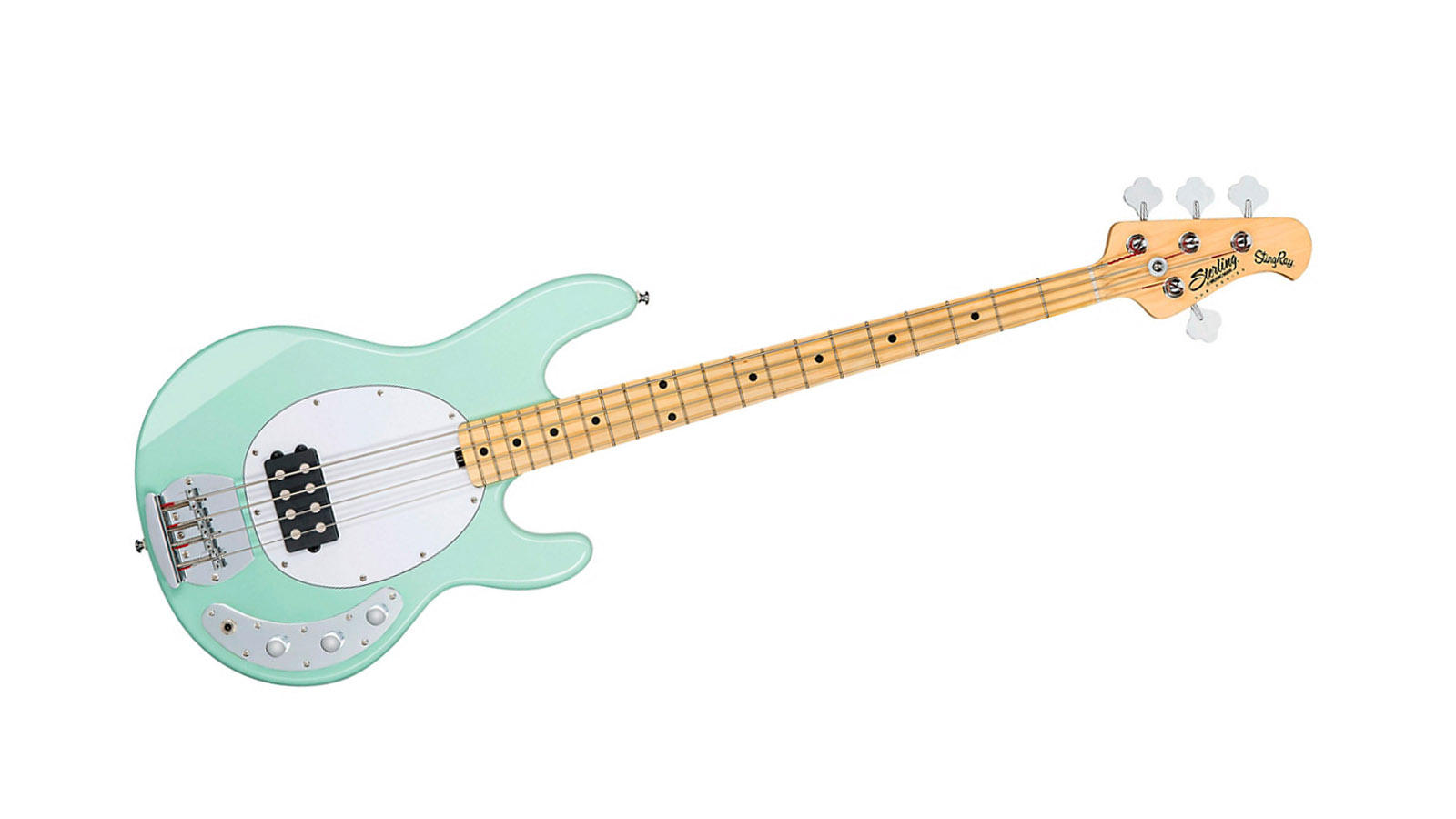
Specifications
Reasons to buy
Reasons to avoid
✅ Buy if you want a grown-up bass guitar: Based on an all-time classic, this Sterling by Music Man StingRay is ideal for older players who want their first bass guitar.
❌ Avoid for young kids: The long scale length of this guitar will likely be too cumbersome for younger children.
The SUB, or ‘Sports Utility Bass’, Ray4 is the sort of instrument that makes you do a double take when you see the price tag. It looks like a StingRay, it feels like a Music Man StingRay, and yet it comes in at the 300-buck mark.
You can still tease all kinds of inspiring tones out of this, from the electric bounce of funk to more bruising low-end thunder for rock’n’roll, or simply roll back on that treble for woody jazz. The StingRay neck profile offers a taste of its top-dollar sibling’s feel, and, likewise, the fully adjustable bridge gives you a similar amount of control over string height and intonation. Altogether it feels like a pretty grown-up bass.
Perhaps most notably in the electrics, there has been some downsizing. Where the flagship Music Man StingRay 4 models have an active 18V pickup and preamp with 3-band EQ, the Ray4 has got the 9V active pickup and preamp combo with simplified 2-band hi and low cut/boost controls. But really, that's a minuscule price to pay if it means this bass comes to you for a tenth of the price of a full-fat USA model. There's no denying that the Ray4 is one of the best budget bass guitars on the market today.
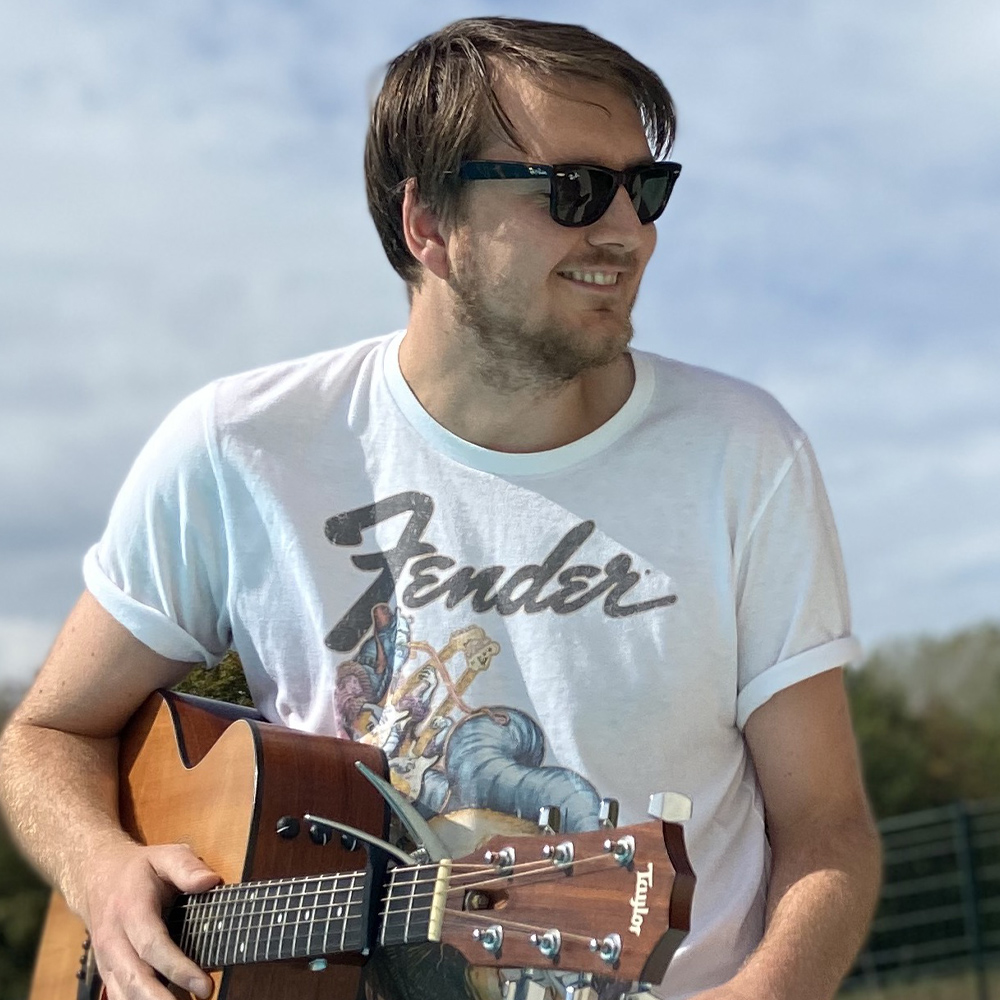
"In terms of sound, the Ray4 delivers more than you might expect at this price point. It isn’t quite as refined as the full-fat American model, but it’s still got a lot of those Stingray characteristics. It’s powerful and punchy and it has that slight bump in the mids that helps give it a lovely, throaty roar when you push it."
Best 5-string
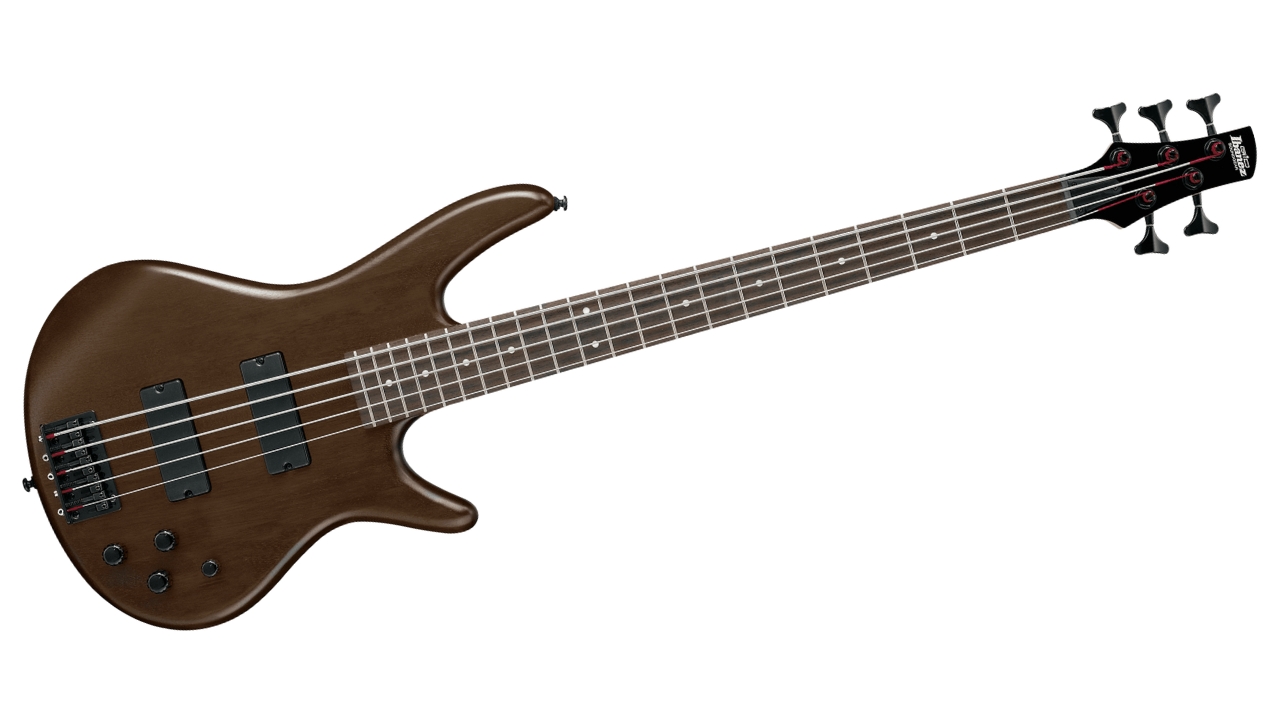
5. Ibanez GSR205B
Our expert review:
Specifications
Reasons to buy
Reasons to avoid
✅ Buy if you want to get stuck in at the deep end: With an additional string, this Ibanez gives you some extra options when it comes to tone and playability.
❌ Avoid for young kids: With the extra string and long scale length, this will most likely be too much to handle for younger children.
There's nothing wrong with jumping straight in with a five-string if that's what you want to do. At the end of the day playing an instrument you're inspired by is the most important thing when learning, and the Ibanez GSR205B does a brilliant job as a beginner 5-string bass.
Two humbuckers ensure powerful tones that capture the lower registers brilliantly. You'll need to do a little tweaking in some cases to get articulation on the low string but the Phat II active EQ is a powerful tool for helping you sculpt your sound.
We found the neck to be ultra-playable despite the extra string, although it will be difficult for very young players to grasp. It's got that trademark Ibanez playability, however, and will keep beginners nice and comfortable while they get up to speed with the instrument.
Best for metal
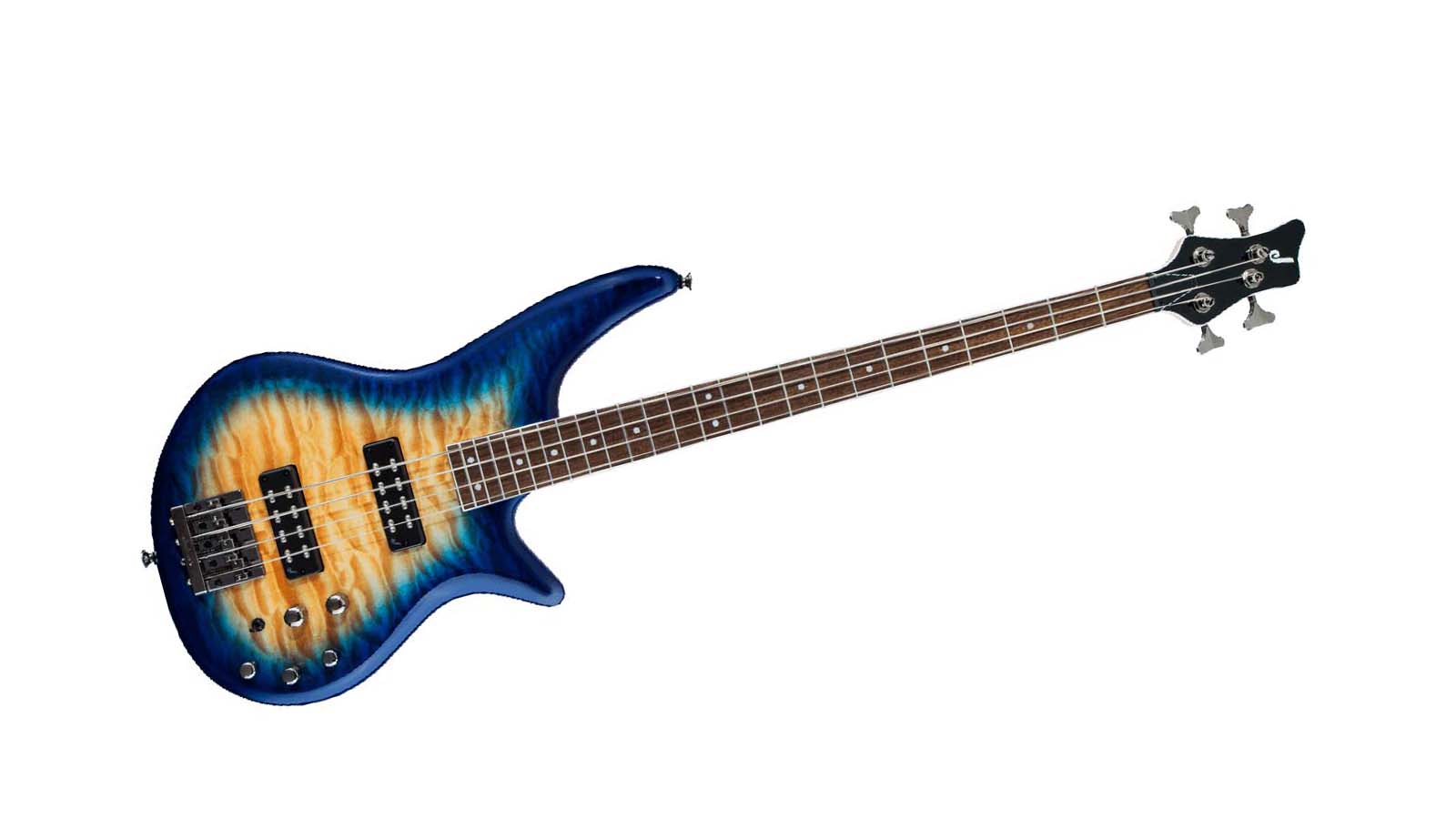
6. Jackson Spectra Bass JS3Q
Our expert review:
Specifications
Reasons to buy
Reasons to avoid
✅ Buy if you want to play heavy: With the striking looks and active pickups, this is a bass designed for heavy guitar tones.
❌ Avoid if you want flexibility: If you're not playing rock or metal, you might find this bass a little limiting tonally.
The Spectra Bass series shows the other side to Jackson, decommissioning the sharp edges with a sumptuously contoured, offset double-cutaway body and elongated upper horn.
Now, you might say this is not the most original design – it calls to mind basses such as Ibanez’s SR300E – but the contouring is quite different and it makes for a perfectly balanced and eminently playable bass. There’s a full two-octave fretboard and a neck that makes easy lifting of busy basslines.
You will find a wide range of tones here, with thick and warm low-end and that elastic bounce in the upper mids and baritone twang with the treble dialed in. The string-through-body HiMass bridge makes for a super-stable bass, and we love that there is push/pull for active or passive performance, meaning a drained battery come showtime is not the disaster it could be.
Also consider
Yamaha TRBX174EW
Mahogany body | Maple neck | Sonokeling fretboard | 34” scale | PJ pickups
Yamaha’s TRBX series has a similar body shape to the Jackson Spectra and Ibanez Soundgear basses, but here there’s a clever twist on the recipe by using an exotic wooden veneer on top of a solid mahogany body.
★★★★½
Cort GB-Short Scale Bass
Poplar body | Roasted maple neck/fingerboard | 30" scale | H pickup
With excellent build quality, the Cort GB-Short Scale Bass is a stunning-looking option ideal for players who need something more comfortable. It's got a surprisingly broad sound, able to cover a variety of different sounds, and is very reasonably priced considering the feature set and specs.
★★★★½
Read more: Cort GB-Short Scale Bass review
Squier Affinity Precision PJ Bass
Poplar body | Maple neck | Indian laurel fretboard | 34" scale | PJ pickups
As instruments go, Fender’s Precision bass guitar is perhaps one of the most revolutionary of them all. Being the first electric bass guitar ever created, the P-Bass helped shape modern music as we know it. So, how does Squier’s affordable Affinity P-Bass stand up to that reputation? Pretty darn well we’re happy to report!
★★★★½
Orange O Bass
Okoume body | Maple neck | Purpleheart fretboard | 34" scale | Split coil pickup
You might notice that the position of this pickup is slightly further away from the bridge than most other setups of this ilk and that’s no accident. It helps the Orange O-Bass deliver a beefier, more rounded, thumpy low end. It’s great for old-school soul, blues, and RnB but when driven through an angrier rig, it’s got enough attitude to deal with contemporary rock and even metal.
★★★★☆
Read more: Orange O Bass review
Squier Debut Series Precision Bass
Basswood body | Maple neck | Indian laurel fretboard | 34" scale | Split coil pickup
It's not without its flaws, but if you're looking for a super cheap bass guitar for beginners, the Squier Debut Series Precision Bass makes a great case. It's also a good shout for more experienced players who want a cheap modding platform.
★★★½
Read more: Squier Debut Series Precision Bass review
How to choose
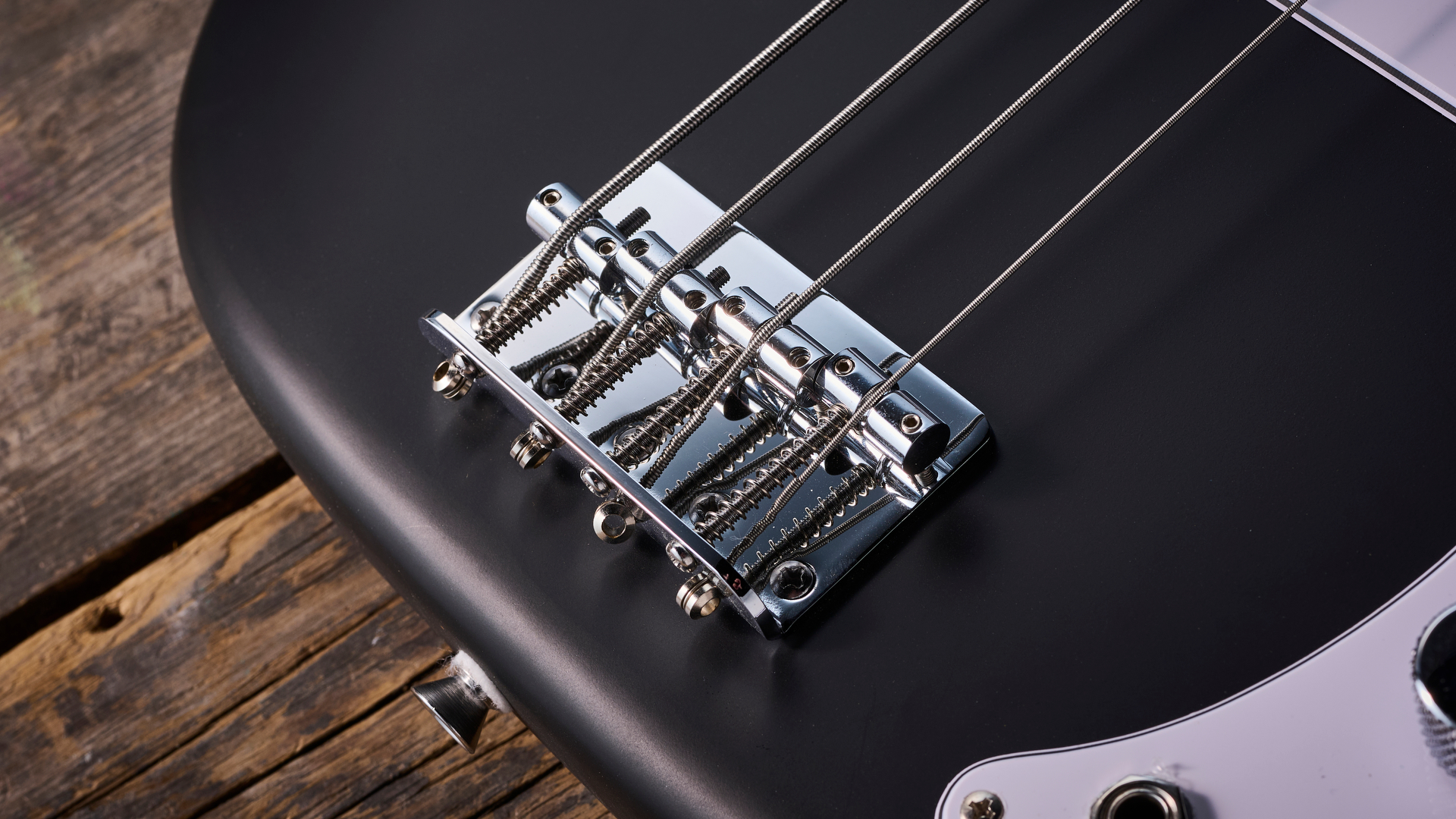
If you're looking to buy a bass guitar for a beginner, or you're just starting playing yourself, there are some considerations you'll need to make before buying. Bass guitar is quite different to electric guitar despite the similar look, so make sure you take into account the differences before you commit.
1. Scale length
You can trust Guitar World
The biggest factor in a bass guitar is it's scale length, which is the measurement between the nut and the bridge of the guitar. It's typically measured in inches, and essentially it determines how long the bass guitar is overall. The larger the scale length, the larger the bass guitar will be.
If you're buying for a young child, then you're much better off going for a short scale bass guitar which will be much more comfortable for them to play. Short scale bass guitars are typically around 30-31", whereas a full size bass guitar is around 34". It may not sound like much of a difference, but you will feel a big difference in terms of playing comfort.
2. Bass amp
If you're buying a bass guitar, you're going to need a bass amp to go along with it. Bass guitars will work with a regular guitar amp, but they will damage them over time as the speakers aren't rated for the lower frequencies a bass guitar produces. Check out our best bass guitar amps guide for some of our top picks.
3. Active or passive
There are two types of bass guitar pickup, with active pickups requiring an external power source (usually a 9V battery) while passive pickups work without any additional power requirements. Active pickups deliver a stronger tone, but for simplicity's sake, I'd recommend getting a passive bass for a total beginner.
4. 4-string versus 5-string bass
For total beginners, stick with a four string bass guitar. An additional string just complicates matters, and there are still plenty of songs you can play on a regular four string. Five string basses are also generally larger in size, so especially ill-suited to young children learning to play the instrument.
If you've already played a bit of guitar, or you're an adult that fancies a challenge, then a 5-string bass guitar offers some additional notes and opportunities for playing styles. The extra string is only five more notes than a regular bass technically, but you can do a lot more with that.
FAQs
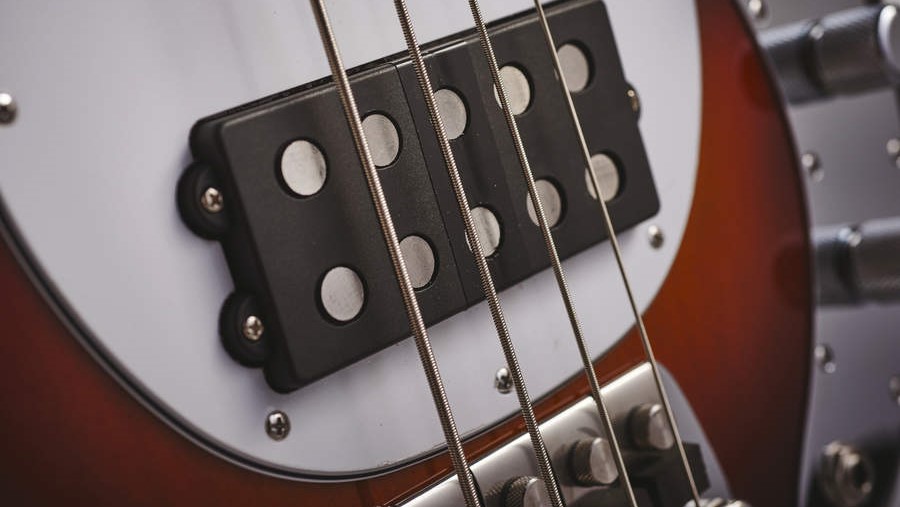
How much should I spend on my first bass?
I'd recommend spending somewhere between $200 and $500 on your first bass guitar. This means you'll get a decent quality instrument, but aren't investing loads of money in something you might decide not to carry on with.
Should I get a 4-string or 5-string bass?
For the vast majority of beginners, I would say the best path is to go for four strings. Otherwise you'll just be making things more complex for yourself. That said, for adults or someone who already has experience playing an instrument, then a 5-string bass could still work.
What accessories do I need to start?
The most pertinent accessory you'll need a bass amp. Your new bass guitar won't sound very good without one! Things like picks, a strap, new strings, and a gig bag won't go amiss either.
Should I buy new or used?
For complete beginners I would aways recommend buying new. You can easily return your bass if it's not for you, or there's an issue with it, which is not always the case when buying used. Beginners also don't have the requisite experience with buying a used instrument, so could potentially overlook defects that end up affecting your ability to play the instrument.
If you've already got experience with a regular electric guitar and are just choosing to move over the bass, or need one for recording, then buying second hand is a great way to save some money and get something better suited to a more developed playing ability.
Do I need a professional setup?
Most new instruments from reputable brands should be reasonably well set up out of the box, but getting a set up will never hurt if its within your budget. Having a professional look at your instrument means you can get it playing really nicely, and identify any potential build quality issues early on.
What’s the best way to start learning bass?
If you want to start playing bass guitar, then start by checking out our best online guitar lessons guide, which features loads of the best platforms for learning the instrument. You can learn via YouTube videos, but for complete beginners it's better to follow something structured before you start taking advice from unknown sources.
Key terms
- Action: This refers to the height of the strings from the fretboard. Generally players prefer as low an action as possible.
- Active pickups: These are pickups that require an external power source, like a 9V battery, to work.
- Bridge: The metal component that anchors the strings to the guitar body.
- Cab (cabinet): The speaker portion of a bass amplifier that delivers the sound.
- Coil tapping/splitting: A type of wiring that splits the two coils of a humbucker into a single coil, usually with a switch or by pulling up or pressing down on a knob.
- Compression: An effect that smooths out the playing dynamics, preventing huge jumps in volume.
- DI (Direct Input): A method of sending your bass guitar signal straight into a PA mixer or audio interface. Used in live shows and recording studios.
- EQ (Equalizer): On a bass guitar these refer to the tone controls that shape the sound by boosting or cutting low, mid, or high frequencies.
- Fingerboard/fretboard: The front portion of the neck where you place your fingers.
- Flatwound strings: An older type of string with a different construction that results in a warmer, rounder tone. Typically used in jazz, soul, Motown, and blues.
- Frets: The metal strips that divide the fretboard into notes.
- Gain: Technically means the amount of input on an instrument or piece of gear, but often used to refer to distorted or overdriven guitar tones.
- Gig bag: A padded, soft case for carrying around your bass guitar.
- Humbucker: A pickup design made of two single coils which results in a hum cancelling effect. Produces a fatter sound than a single coil pickup.
- Intonation: How in tune the guitar is across the whole of the neck.
- Jack socket: Where you plug a guitar cable into your bass guitar.
- Nut: The small slotted piece of plastic or bone at the top of the neck that guides the strings through to the tuning machines.
- Passive pickups: A type of pickup that doesn't require any additional power in order to work.
- P-Bass (Precision Bass): Fender's most famous bass guitar that utilized a split coil pickup, and has since been copied by many different companies.
- Scale length: The distance between the nut and the bridge, which affects the length of the guitar and string tension.
- Setup: The process of adjusting a bass guitar in order to ensure it plays optimally.
- Single-coil: A pickup type consisting of a single coil that delivers a bright tone, but is susceptible to hum.
- Slap bass: a style of bass that involves hitting the strings with the knuckle of your thumb and pulling with your fingers to create a percussive style.
- Split-coil: A pickup type where the top and bottom are split apart slightly and wired for hum cancelling.
- String gauge: The thickness of your bass guitar strings, with heavier gauges meaning thicker strings that are harder to play, and light gauges meaning lighter strings that are easier to play.
- Truss rod: A metal rod inside the guitar neck used to adjust the curvature of the neck when changing string gauge or adapting to atmospheric changes.
How we test
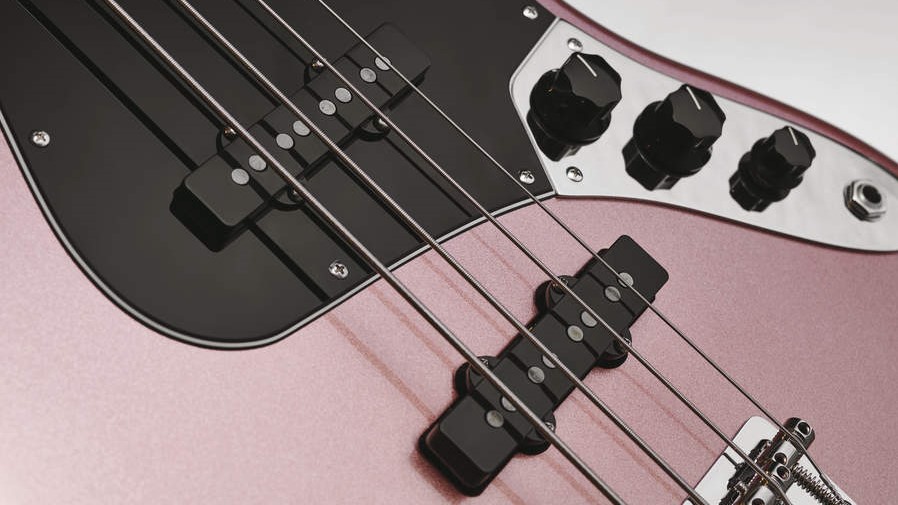
When testing a beginner bass guitar, not only do we need to evaluate it as an instrument in its own right, but we must do so through the lens of a beginner player. Our writing team were all beginner guitarists at one point or another, which gives us fantastic oversight when choosing beginner instruments.
With a beginner bass guitar, the first thing to consider is who exactly is going to use it. Bass guitars are large pieces of equipment, thus we need to make concessions as to whether or not they're suitable for younger players. A 5-string bass is great, but for a younger player, there's little chance playing one would be comfortable. Likewise, not every learner is younger, so we have to determine whether an adult player would find the instrument usable.
As with any instrument, whether it's a beginner acoustic or an entry-level bass, we'll start by examining the build quality of it. Do the knobs and tuners feel solid, is the finish free of any blemishes and has the whole thing been well put together? We'll go over the instrument with a fine toothcomb to check for any cracks or subtle hints of poor crafting.
Next, we'll plug it in and play all over the neck to get a feel for the playability. Are the fret ends nice and smooth? Does the fretboard feel well lubricated or is it dry? By trying a variety of riffs, licks, chords, and even bass solos, we're able to ascertain whether or not the instrument will be playable for a beginner.
Finally, we'll look at the sound. Plugging the instrument into a variety of sources is crucial to determining how well it sounds. We'll run it into a bass amp, direct into an audio interface, as well as through an amp modeler to get a good overview of how it reacts in different scenarios. We're looking for articulation from the pickups and variety from the EQ controls on the bass guitar itself so we can determine whether or not it's rounded enough to appeal to the myriad of styles a beginner bass player is likely to go through.
Read more about our rating system, how we choose the gear we feature, and exactly how we test each product.
Latest updates
03/02/26: The guide has had the introduction rewritten and a new header image added. Each product entry now has a 'Buy if' and 'Avoid if' boxout section for extra advice.
Related buyer's guides
- Here is our pick of the best gifts for bass players
- Our pick of the best 5-string bass guitars
- Enhance your sound with the best bass effects pedals
- Freshen up with the best bass strings
All the latest guitar news, interviews, lessons, reviews, deals and more, direct to your inbox!
Jonathan Horsley has been writing about guitars since 2005, playing them since 1990, and regularly contributes to publications including Guitar World, MusicRadar and Total Guitar. He uses Jazz III nylon picks, 10s during the week, 9s at the weekend, and shamefully still struggles with rhythm figure one of Van Halen’s Panama.
- Ross Holder
- Richard Blenkinsop
- Matt McCrackenJunior Deals Writer
